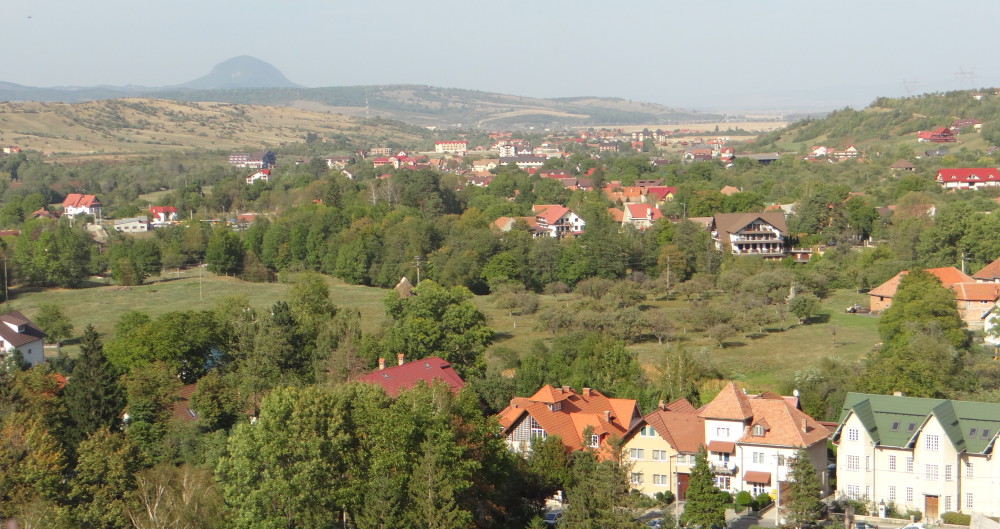 My azaleas in Mississippi
My azaleas in Mississippi
Photo: Ileana Johnson 2004
As a resident of Mississippi for thirty years, I learned that living in the tornado alley close to Tupelo meant that downpours, high winds, and spun-seemingly-out-of-nowhere tornadoes were a weekly occurrence during hurricane season.
The first tornado I experienced took down part of the only mall in Tupelo and caused severe damage in its vicinity. The hit sometimes looked like a surgical strike and other times it downed an entire patch of forest on Natchez Trace, skipping and jumping to other locations for miles. We had straight line winds that often caused more damage than some tornadoes did.
During my tenure at the local university, most of the old trees, including a beautiful and venerable magnolia were uprooted. Several buildings, including dorms, were so severely damaged that they had to be torn down and rebuilt. Students were missed in their beds by mere inches by flying lamp poles or huge tree branches, and cars were smashed by falling trees.
I will never forget looking out of the window at the menacing clouds in the distance, watching my neighbors’ son get out of his car and, before he entered his parents’ house, one of the very old trees lining the street fell with a loud grown on top of his car, flattening it into a pancake.
Spotted tornado alarms would go off every week and people had to seek shelter in the bathtub or, as in our case, in the tornado shelter built inside the garage. The former owner, a doctor, thought that it was a good idea to place the water heater in it as well. I know he planned it because I found the architect’s drawings in the hall closet.
Living in the country for a while, I witnessed tornadoes do a lot of damage to trees and at times unlucky cows were struck by lightning or picked up by the wind cone – sometimes they were dropped nearby, sometimes we never knew where they went until other neighbors would find them dead or alive.
Living in trailers in the south was an entirely novel experience for a European like me – I’ve never seen one before. During high winds and tornadoes, the tin can on wheels, although anchored well, rattled and lifted up as if trying to fly like Dorothy’s house in the Wizard of Oz. During sun-shiny weather bees, mice, and other critters found their buzzing and stomping grounds inside the thin metal shell and thin insulation.
We survived Katrina simply because we lived on higher ground and many hours inland but the wind damage was tremendous. Our sturdy house was built in 1960 when construction was a serious business, and homes were not built of spit and toothpicks.
We lived for three weeks without electricity and covered in 60-year old pine trees that fell around our home and into the street. The loneliness and despair stemming from the devastation around us was overpowering.
An entire town in the southern part of Mississippi was razed from the face of the earth as if it had never existed. Only concrete slab foundations and pipes jutting out of the ground remained. The media did not cover that disaster much because the attention was entirely focused on New Orleans and the people self-trapped in the stadium.
Mississippians, churches around the state, and the Salvation Army, sprang into action and started sheltering people, feeding them, providing water, cleaning up the incredible mess, and rebuilding quietly and efficiently in the same manner they’ve been fighting the force of nature for ages.
My next door neighbor shot himself in his bedroom. He had mental issues and the damage from the storm and the loneliness was too much to bear. Someone bought his house for pennies on the dollar because nobody wanted to live in a house where such tragedy occurred.
Mother Nature with its spun tornadoes did not care that it was a really hot or a really cold season, it left us without water and electricity for days and weeks. We stayed in hotels, showered at the gym, and helped other people do the same.
We lost refrigerators and freezers full of food many times over. I can’t remember how many times I’ve owned microwaves and TVs struck by intense lightning; one microwave I was attempting to buy from Sears cost me one penny – they could not find the price, it had been written off the inventory for disposal, so they sold it to me for a penny. I’ve replaced HVAC systems flattened by fallen old pines twice and the roof three times in the twenty years I’ve owned the house. Yet my fig tree survived. To this day it gives an abundant crop of figs to the family who bought our home.
When the street was impassable due to fallen trees, our Mennonite neighbors from Brooksville showed up with chain saws and cleared it in less than a day and hauled off the timber. They dragged the roots to the dump and filled the huge holes left behind with fresh soil. Other flying debris which landed in the yard was also carefully cleared.
One of the pleasures of living in Virginia, aside from its natural and unmatched beauty, is that I do not have to hear the tornado sirens every week, telling us to seek shelter. We’ve had high winds that have caused some tree damage and a few tiles stripped off the roof, but nothing compared to the Mississippi tornado alley we had to live through almost every week when torrential rains came out of nowhere.
We’ve had highly powerful and intense hurricanes and tornadoes in the last two centuries but the population density was much lower and the infrastructure less developed. Billions of dollars fly out the window with the fury of wind and water, depending on the value of the homes and businesses in its wrathful path.
In the South Mother Nature unleashes its fury periodically and people learn to cope with such intensity because they are resilient and selflessly helpful to each other in the face of disaster.
ILEANA JOHNSON
American By Choice

Interesting article, and cogent observations about the people of MS.
I also appreciate your article about the rebranding of Communism, and its embrace by the Democrats, Hollywood, media, and the political left. If you will send an address, I would be happy to send to you a DVD of our film Trevor Loudin”s “Enemies Within,” which covers the subject in greater detail.
Thank you, Kyle, I lived in MS most of my adult life.